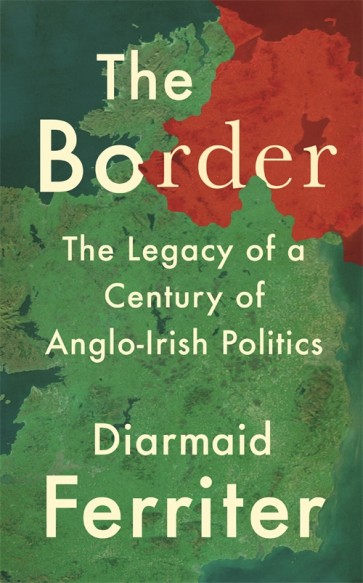May Book of the Month: Minor Monuments by Ian Maleney
/Minor Monuments - Essays
by Ian Maleney
Published by Tramp Press
Review: Marcel Krueger:
Ireland is not always the country of gentle hills, Atlantic ways or peat fires in pubs that German tourists in Goretex seek out. This is a country of shibboleths and tribalism, of bullets on wets streets, hunger strikes and bomb blasts. And for me these things are as apparent on the streets of Belfast and Dublin as they are out on the tourist coasts, as apparent along the Grand Canal as they are out in the Midlands. For me as an outsider who has lived over a decade on the island of Ireland now, there are few lines of text that describe my feelings for this country better than the last stanzas of Seamus Heaney's 'The Tollund Man':
Out here in Jutland
In the old man-killing parishes
I will feel lost,
Unhappy and at home.
Maybe it is no coincidence that on the first few pages of his essay collection 'Minor Monuments', Ian Maleney recalls his partner taking a picture of him overlooking the bog near his family home in Pollagh in County Offaly and adding the same lines of Heaney to that image: Maleney is aware of the same darkness.
Together with Emilie Pine's 'Note to Self' (also published by Tramp Press) and Sinead Gleeson's 'Constellations', Maleney's 'Monuments' forms the spearhead of a new wave of Irish essay writing. Where in the past fiction was the order of the day, these days a new wave of Irish writers is again concerned with navel-gazing in the best sense of Michel de Montaigne: of looking at places, the country and oneself without the added filter of fiction.
Maleney's book is a rare kind of thing, as it finely weaves together three-layers in his (essay) writing: it contains 12 essays, each aligned topically: 'Shelter','Machine Learning' and so; and at the same time charts the descent of Maleney's grandfather John Joe into Alzheimer's and death; and this is also a book about Maleney literally leaving the bog and the established community and family structures of his home place - and observing them from the outside.
The main setting throughout the book is the home of Nana and John Joe, especially the kitchen ('a room where you can really feel the night falling.'), and the overall rural environment of the family houses and the ever-present bog at the periphery. Maleney, who also edits and designs Fallow Media, one of the finest examples of new online publishing in Ireland, not only talks about the meaning of the bog as energy supply and source of income for the community (Bord na Móna, the Irish Peat Board, built a peat-operated power station here, and John Joe and many others worked in peat harvesting), but also as the wild living thing it is:
The boundaries between bog and farm seemed to break down entirely. Houses, sheds, and farmyards appeared out of nowhere, perched on the edge of the blackness beyond. It was as if they'd carved a little bit of calm out of the bog many years previous, and had spent all the time since being attacked and undermined by feral wilderness. Whatever civilising sense they had was porous and partial. Nothing grew straight. Every bush and tree was a mass of tangles and nothing man-made remained square for long. Fences and gates were crumbling, and the breeze block walls of tin-roofed sheds sagged into the soft ground at incongruous angles. The road itself was one long twist punctuated by jagged potholes. The leafless branches of the hardy roadside trees reached out towards us, desperate and lonely. This was Turraun.
Maleney also talks about the distance that the writer as an outsider writing about history has to the lived memory that keeps community and place together, from which he willingly removes himself, with the help of other artists. Seamus Heaney makes multiple appearances, as do Richard Skelton, Rebecca Solnit or Susan Sontag. But Maleney's writing is strongest when he approaches the slow disappearance of John Joe and tries to examine what Alzheimer's means for the human suffering from it and their family and carers, which he beautifully does in 'Pneumonia':
Often the sea is literally wide, but sometimes it is more ambiguous than miles plotted on a map. Sitting in the kitchen with John Joe, I was struck by the resonance between two different experiences of exile; the emigrant and the amnesiac. As the past grew more distant and foggy in his mind, gradually disappearing over some unrecoverable horizon, the songs became more important and more accurate too. They were a link with that past, that foreign country, even as they dramatised the experience of losing it. John Joe sang like a man whose boat was rapidly filling with water. He had a very wide ocean to cross, one he could not swim over.
The place where Maleney and I live these days is still a dangerous and dark island, one where murder, pollution and cronyism prevail. It is good that we have writers like Ian Maleney laying himself and the country. For a clear and honest look at the sensitivities of Ireland and its people there are few better books out there at the moment.
***
Wherever possible we recommend that readers of Elsewhere buy their books from a bricks and mortar bookshop or direct from the publisher.
Marcel Krueger is the Books Editor of Elsewhere: A Journal of Place. His writing has been published in numerous places both online and in print, and he is the author of Babushka’s Journey: The Dark Road to Stalin’s Wartime Camps (I.B. Taurus, 2017) and the upcoming Iceland: A Literary Guide for Travellers (I.B. Taurus, 2020). You’ll find him on twitter here.



